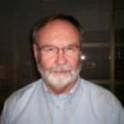Throughout the world education authorities want to know the capacities that their students develop during their formative years at school. They want to know to what extent students have learned fundamental scientific concepts and theories and how well they can solve real-life problems involving science and technology. In order to provide answers to these questions, PISA provides an international benchmark. Unlike many traditional assessments of student performance in science, PISA is not limited to measuring students' mastery of specific science content. Instead, it measures the capacity of students to identify scientific issues, explain phenomena scientifically and use scientific evidence. These three competencies for the backbone of the PISA science assessment carried out in 2006. By analysing the difficulty of the questions in the test, it is possible to estimate the location of individual students on a continuous scale that describes their capacity in different competencies. PISA 2006 constructed such scales for each of the science competencies. PISA 2006 also created a scale (referred to simply as the science scale) that combined the questions from all scales. To facilitate the interpretation of the scores assigned to students, the science scale was constructed to have a mean score among OECD countries of 500 points, with about two-thirds of students across OECD countries scoring between 400 and 600 points.
- Achievement tests,
- Benchmarking,
- Comparative education,
- Competency based assessment,
- Difficulty level,
- Educational testing,
- International studies,
- National competency tests,
- Scaling,
- Science achievement,
- Scientific concepts,
- Scientific literacy,
- Secondary school students,
- Student assessment,
- Test interpretation,
- Test items,
- Test results
Available at: http://works.bepress.com/john_cresswell/12/
